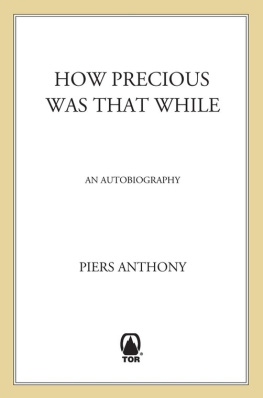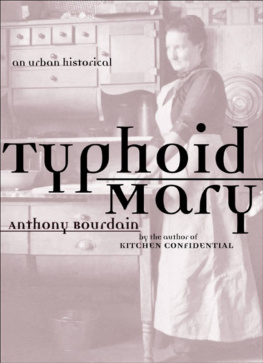St. Anthony Mary Claret - The Autobiography of St. Anthony Mary Claret
Here you can read online St. Anthony Mary Claret - The Autobiography of St. Anthony Mary Claret full text of the book (entire story) in english for free. Download pdf and epub, get meaning, cover and reviews about this ebook. year: 2016, publisher: TAN Books, genre: Science. Description of the work, (preface) as well as reviews are available. Best literature library LitArk.com created for fans of good reading and offers a wide selection of genres:
Romance novel
Science fiction
Adventure
Detective
Science
History
Home and family
Prose
Art
Politics
Computer
Non-fiction
Religion
Business
Children
Humor
Choose a favorite category and find really read worthwhile books. Enjoy immersion in the world of imagination, feel the emotions of the characters or learn something new for yourself, make an fascinating discovery.

- Book:The Autobiography of St. Anthony Mary Claret
- Author:
- Publisher:TAN Books
- Genre:
- Year:2016
- Rating:5 / 5
- Favourites:Add to favourites
- Your mark:
- 100
- 1
- 2
- 3
- 4
- 5
The Autobiography of St. Anthony Mary Claret: summary, description and annotation
We offer to read an annotation, description, summary or preface (depends on what the author of the book "The Autobiography of St. Anthony Mary Claret" wrote himself). If you haven't found the necessary information about the book — write in the comments, we will try to find it.
The Autobiography of St. Anthony Mary Claret — read online for free the complete book (whole text) full work
Below is the text of the book, divided by pages. System saving the place of the last page read, allows you to conveniently read the book "The Autobiography of St. Anthony Mary Claret" online for free, without having to search again every time where you left off. Put a bookmark, and you can go to the page where you finished reading at any time.
Font size:
Interval:
Bookmark:
The
Autobiography of
St. Anthony Mary
Claret
Priest, Missionary,
Archbishop, and
Founder of
The Congregation of
Missionaries,
Sons of the Immaculate
Heart of Mary
Translated from the
original Spanish by
Louis Joseph Moore,
C.M.F.
Nihil Obstat: | Emanuel Milagro, C.M.F. | |
Censor Librorum | ||
Imprimi Potest: | Stephen Emaldia, C.M.F. | |
Provincial Superior | ||
February 28, 1945 | ||
| Imprimatur: |  | John Joseph Cantwell, D.D. |
| Archbishop of Los Angeles | ||
March 2, 1945 |
Copyright 1945 by Claretian Major Seminary, Compton, California. Reset by TAN Books and Publishers, Inc.
Library of Congress Catalog Card No.: 85-51661
ISBN: 0-89555-284-1
Typography is the property of TAN Books and Publishers, Inc., and may not be reproduced, in whole or in part, without written permission of the publisher.
TAN Books
Charlotte, North Carolina
www.TANBooks.com
1985
"The sole reason why society is perishing is because it has refused to hear the word of the Church, which is the word of life, the word of God. All plans for salvation will be sterile if the great word of the Catholic Church is not restored in all its fullness.
"The right to preach and instruct the people which the Church has received from God Himself in the persons of the Apostles, has been usurped by a crowd of prattling newspapermen and ignorant babblers. The ministry of the word of God, which is the most elevated and important of allbecause by it the earth has been conqueredhas turned from a ministry of salvation to an abominable ministry of ruin. As nothing or nobody could check the triumph of the word of God in the time of the Apostles, so also will no one or nothing be able to repress the ravages of false preaching and doctrines unless by opposing them with the preaching of priests and by the distribution of abundant good books and other holy and profitable works.
"O my God, I give Thee my word that I will labor, preach, write, and circulate good books and pamphlets in abundance, so as to exterminate evil by good."
St. Anthony Mary Claret
The Autobiography, Ch. 28, Part 3.

St. Anthony Mary Claret
1807-1870
Missionary, Archbishop, Founder
(This photograph was taken in 1857.)
ACT OF CONSECRATION TO MARY
O Virgin and Mother of God, I surrender myself to thee as thy child; and in honor and glory of thy purity I offer thee my soul and body, my mind and senses, and I plead thy grace to keep me from sin. Amen.
Prayer distributed far and wide by St. Anthony Mary Claret
PUBLISHER'S PREFACE
As one considers the life of St. Anthony Mary Claret, the obvious and logical question that continually recurs is, "What motivated this man to such heroic acts for Christ?" When we reflect upon the prodigious output of intelligently directed and tremendously effective activity, we are simply awed by the extent and the quality of the man's work. To think that in 35 years of priesthood, he wrote 144 books (at the end of his life, he could not even remember how many) and preached an estimated 25,000 sermons, we would have to conclude that this alone was simply extraordinary; that amounts to some 4 books each year and approximately 2 sermons each day, every day of the year, for 35 years on end. But added to this, during his six years and two months as Archbishop of Santiago in Cuba, he confirmed over 300,000 people and rectified 9,000 marriages; this amounts to 133 people confirmed and 5 marriages rectified each day. Now, if this were all, it would be totally phenomenal, but there was more! St. Anthony Mary, during his service as Archbishop of Santiago, visited every parish in his diocese 4 times (some had not been visited by a bishop in 60 or 70 years) and gave a mission in each onein some parishes he gave several missions. During his earlier years as a priest in Spain and the Canary Islands, he was almost continually giving missions. In fact, he saw this as his primary work as a priest. It is said of him that he heard confessions as much as 15 hours a day, and by his own testimony, he walked everywhere he went, even from town to town.
How did he find the time? But perhaps the more telling question is, "Why did he find the time?" What was driving him on? What motivated such an outpouring of zeal? He admits that it was a special grace of God that he did not require much to eat or much sleephe slept no more than five hours each night. And some days it was only one hour. Physiologically it is not too difficult to explain how someone could achieve all he achieved, for there are other cases of people whose diet is abstemious and free from stimulants and depressants (such as coffee, tea and wine) who have exhibited tremendous feats of endurance and achievementsuch to boggle the mind. Again, however, the question is, "Why did St. Anthony Mary do all that he did?" What motivated him?
He gives us the answer himself: it was the love of God and desire for the salvation of souls. "Another thing that spurs me on to preach ceaselessly," he once exclaimed, "is the thought of the multitude of souls which fall into the depths of Hell... who die in mortal sin, condemned forever and ever... If you were to see a blind man about to fall into a pit or over a precipice, would you not warn him? Behold, I do the same..." Another time he wrote, "How often I pray with St. Catherine of Siena: 'O my God, grant me a place by the gates of Hell, that I may stop those who enter there, saying: "Where are you going, unhappy one? Back, go back! Make a good confession. Save your soul. Don't come here to be lost for all eternity!"'" But how, we must ask, did he acquire such a love of his fellow man?
In of his Autobiography (Part Three), he tells us: "The most necessary virtue of all is love. Yes, I have said it once, and I will say it a thousand times. The virtue which the apostolic ministry needs most of all is love. He [the apostle or missionary] must love God, he must love his neighbor. If he does not have this love, all his natural talents will prove useless. But if he has great love along with natural qualities, he has everything. It is the love which burns within him that makes him preach the word of God like fire from a gun... If one does it with natural motives, one's preaching will reap but poor results. But if the word of God is preached by a priest burning with the fire of charity, of the love of God and of his neighbor, then he will root up vices, banish sin, convert sinners, and work wonders... In truth the fire of charity acts in the same way in the minister of the Lord as the material fire does in the locomotive or in the motor of a steamship... Of what use would all that machinery be if there were not fire or steam? Surely the locomotives and ships would then be good for nothing. Well, what does it profit a priest to have completed the ecclesiastical career and to have graduated in Sacred Theology and in Canon and Civil Law, if he has not the fire of charity? It will be unprofitable for him. Such a one will be of no use to others, because he will be as the engine without fire, and it may be that instead of being a help to others, as he should be, he will be a hindrance. Neither will his personal qualities be of any advantage even to himself, for as St. Paul puts it: 'If I should speak with the tongues of men and of angels, and have not charity, I am become as a sounding brass or a tinkling cymbal.'"
Next pageFont size:
Interval:
Bookmark:
Similar books «The Autobiography of St. Anthony Mary Claret»
Look at similar books to The Autobiography of St. Anthony Mary Claret. We have selected literature similar in name and meaning in the hope of providing readers with more options to find new, interesting, not yet read works.
Discussion, reviews of the book The Autobiography of St. Anthony Mary Claret and just readers' own opinions. Leave your comments, write what you think about the work, its meaning or the main characters. Specify what exactly you liked and what you didn't like, and why you think so.


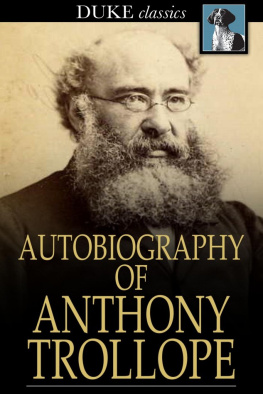
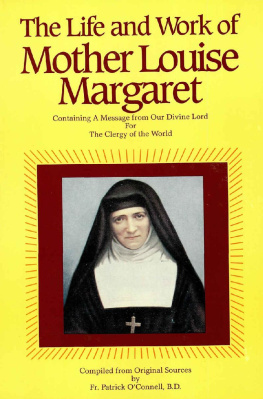
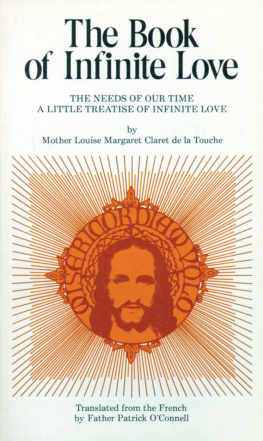
![Mother Louise Margaret Claret - The Sacred Heart and the Priesthood (with Supplemental Reading: Devotion to the Sacred Heart) [Illustrated]](/uploads/posts/book/269773/thumbs/mother-louise-margaret-claret-the-sacred-heart.jpg)
